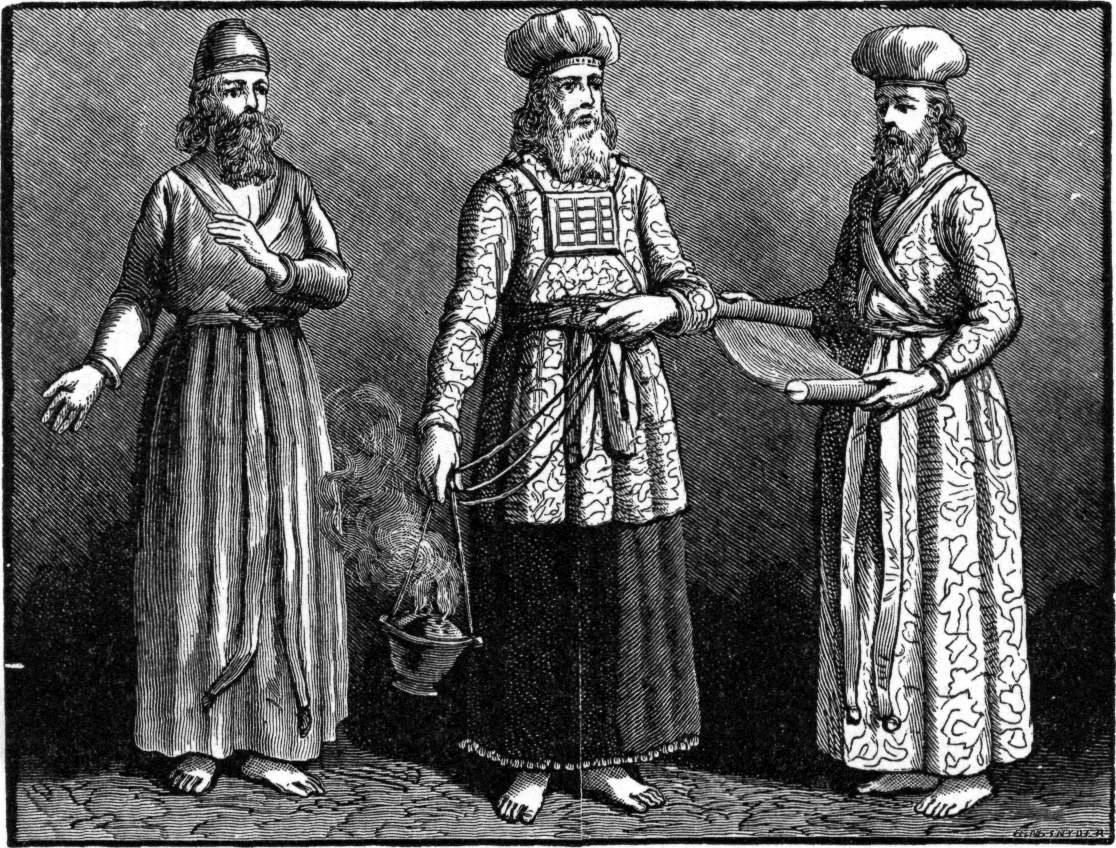The Bible is full of stories of people whose lives were changed by their encounters with God. One such person was Cornelius, a Roman centurion who became one of the first Gentiles to convert to Christianity. His story is an important one in the New Testament, and has much to teach us about faith, redemption, and the power of prayer. In this article, we’ll take a closer look at who Cornelius was, and explore the key themes and lessons of his life.
Cornelius: Who was he and What was his Story?
Cornelius, a central figure in the book of Acts of the Apostles, was a Roman centurion stationed in Caesarea. He was a Gentile, which means he was not of Jewish descent. He is well known for his conversion to Christianity through the influence of Peter, one of Jesus’ disciples.

Cornelius’ story is recounted in detail in Acts 10 and 11. He was a devout man who feared God, respected the Jewish religion, and prayed to God regularly. One day, he had a vision in which an angel told him to send for Peter, who was in Joppa at the time. Cornelius obeyed the angel’s commands and sent his servants to bring Peter to him.
Meanwhile, Peter had his own visions in Joppa, which convinced him that God had given him a mission to preach the gospel to the Gentiles. When Cornelius’ servants arrived, Peter went with them to Caesarea, where he found Cornelius waiting for him with his family and friends.

Peter was amazed that the Holy Spirit had come upon Cornelius and his household, just as it had come upon the Jewish believers on the day of Pentecost. He baptized Cornelius and his household, and they received the gift of the Holy Spirit.
Cornelius’ conversion was significant because it showed that God’s love was not limited to the Jews. This was a radical shift in thinking for the early Christian church, which had been primarily Jewish up to that point. Cornelius’ conversion helped to pave the way for the spread of Christianity to the Gentiles, who could now be welcomed into the faith without having to convert to Judaism first.
Lessons from Cornelius’ story include the importance of prayer and obedience to God’s commands. Cornelius was a man of prayer, which led to his receiving a vision from God. He was also obedient, sending for Peter the moment he was told to do so by the angel.
In art and literature, Cornelius is often depicted as a Roman centurion, wearing his uniform and carrying his sword. He is also sometimes shown kneeling before Peter, in a symbolic act of submission to God.
Overall, Cornelius’ story is a powerful testament to the universality of God’s love and the importance of spreading the message of redemption, grace, and salvation to all people, regardless of their background or ethnicity.
Cornelius in the Context of the New Testament
To truly understand who Cornelius was in the Bible, it’s important to look at him in the context of the New Testament. Cornelius is introduced in the book of Acts of the Apostles, in the tenth chapter. He is described as a Roman centurion in the Italian Cohort who lived in Caesarea (Acts 10:1).
It’s significant to note that at this time, the early Christian church was still primarily made up of Jewish believers. The idea of non-Jews, also known as Gentiles, being accepted into the church was a controversial and debated topic.
However, Cornelius had a reputation as a devout and God-fearing man, who generously gave to the Jewish people and regularly prayed to God (Acts 10:2). It’s in this context that Cornelius had a vision of an angel, who told him to send for the apostle Peter (Acts 10:3-6).
Peter, who was a Jewish disciple of Jesus, also had a vision that led him to Cornelius’ house. This was a significant event because it marked the first time a Gentile was accepted and welcomed into the Christian community. Peter himself admitted how unusual this was, “You yourselves know how unlawful it is for a Jew to associate with or to visit anyone of another nation” (Acts 10:28).

Yet, Peter was soon convinced by Cornelius’ story and his own vision that God had made it clear that Gentiles should be included in the Christian community. He shared the message of the gospel with Cornelius’ household, and they were all filled with the Holy Spirit (Acts 10:44-48).
Cornelius’ conversion was a turning point in the development of Christianity. It paved the way for the inclusion of Gentiles, who now make up the vast majority of Christians today. What’s more, Cornelius’ story demonstrates the power of prayer and faith in God. His devotion and open-mindedness ultimately led him on a path towards redemption and grace through his faith in Jesus Christ.
The book of Acts describes Cornelius’ story in great detail, and it’s a powerful testament to the transformative power of God. By learning about Cornelius’ journey, we can be inspired to seek a deeper understanding of what it means to follow Christ and the importance of inclusion in our community.
The Role of Peter in Cornelius’ Story
Cornelius’ story in the Bible is a powerful illustration of how God’s love extends beyond racial and cultural boundaries. While Cornelius was a Roman centurion and a Gentile, he was a person of faith who prayed and gave generously to the poor. God saw Cornelius’ heart and sent an angel to instruct him to send for Peter, who was then in Joppa.
After a series of visions, Peter obeyed God’s command to go to Cornelius’ house in Caesarea. When he arrived, he found a large gathering of Cornelius’ friends and family who were eager to hear what God had to say to them. Peter preached the gospel message of redemption, grace, repentance, and obedience to Cornelius and his household. They believed in Jesus and were baptized, and the Holy Spirit came upon them.
The role of Peter in Cornelius’ story cannot be overemphasized. As an apostle and leader of the early Christian church, Peter was instrumental in spreading the gospel to both Jews and Gentiles. His encounter with Cornelius was a pivotal moment in the history of Christianity, as it confirmed that God accepted Gentiles who believed in Jesus as his Son.
Peter’s obedience to God’s call to visit Cornelius also showed that God’s love knows no cultural or geographical boundaries. God’s message of salvation is for all people, regardless of their nationality, language, or social status. As Christians, we must follow Peter’s example of being open to God’s leading and sharing the gospel with everyone we meet.
Lessons from the life of Cornelius:
1) God sees our hearts and responds to our prayers.
2) Our generosity and kindness can be a witness to others.
3) Our faith can inspire others to seek God.
4) God’s invitation of salvation is for everyone.
5) Obeying God’s call can lead to unexpected blessings and opportunities to share the gospel.
In summary, Cornelius’ story in the Bible and Peter’s role in it are an inspiring testimony to the power of God’s love to overcome cultural and racial barriers. As Christians, we must follow their example of being open to God’s leading, sharing the gospel message with others, and welcoming all people who believe in Jesus as our Lord and Savior.
The Importance of Cornelius’ Conversion for Christianity

Cornelius’ conversion to Christianity was of great importance for the early Church. He was a Roman centurion who became the first Gentile to be baptized into the faith. His conversion marked the opening of Christianity to the non-Jewish world, and it signified the beginning of a new era in the spread of the Gospel.
Cornelius’ story is told in the book of Acts of the Apostles, which is the fifth book in the New Testament. Acts was written by the historian Luke, who also wrote the Gospel of Luke. In Acts, Cornelius is portrayed as a man of faith and prayer who was visited by an angel who instructed him to send for Peter.
Peter, who was one of the apostles of Jesus Christ, was called to visit Cornelius in the city of Caesarea. Before his visit, Peter had a vision in which God showed him that the message of salvation was meant for all people, both Jews and Gentiles alike. This vision served as a prelude to Cornelius’ conversion, as Peter understood that he was being called to share the Gospel with a non-Jewish audience.
Upon meeting Cornelius, Peter was convinced by the Holy Spirit that Cornelius had already received the grace of God and that he should baptize him and his household. This event marked a turning point in the early Church, as it established that Christianity was meant for all people, regardless of their ethnicity or social status.
Cornelius’ conversion highlights the importance of obedience, faith, and discipleship in the life of a Christian. It shows that God’s grace and redemption are available to all who seek it, and that the Holy Spirit can work in mysterious ways to bring people into the fold of Christianity.

In summary, Cornelius’ conversion was a pivotal moment in the history of Christianity. It opened the doors for the spread of the Gospel to the Gentile world and demonstrated that God’s love and salvation are available to everyone. Cornelius’ story serves as an inspiration to Christians everywhere, reminding us of the importance of faith, obedience, and evangelism in our daily lives.
Lessons from the Life of Cornelius
When we examine the life of Cornelius in the Bible, we can learn valuable lessons about faith, obedience, and discipleship. Here are a few takeaways that we can apply to our lives:
God honors those who fear Him. Cornelius was described as a devout man who feared God and prayed regularly (Acts 10:2). Because of his reverence for the Lord, God took notice of him and sent an angel to speak to him. We can learn from Cornelius’ example and make God the center of our lives.
God uses unlikely people to accomplish His purposes. Cornelius was a Gentile and a Roman centurion, yet God chose him to play a significant role in the spread of the gospel. This reminds us that God can use anyone, regardless of their background or social status, to fulfill His plan.
Prayer and obedience go hand in hand. Cornelius followed the angel’s instructions and sent messengers to bring Peter to his home (Acts 10:7-8). He also gathered his relatives and close friends to hear Peter’s message. Through his obedience, Cornelius and his household were baptized and received the Holy Spirit. This shows us that obedience to God’s commands is a natural response to our prayers.
Salvation is available to everyone who believes. Cornelius’ conversion was significant because it demonstrated that salvation wasn’t just for Jews, but for Gentiles as well. In fact, Peter proclaimed that “God shows no partiality, but in every nation anyone who fears Him and does what is right is acceptable to Him” (Acts 10:34-35). This truth remains relevant today- anyone who puts their faith in Jesus Christ can be saved.
Sharing the gospel is essential to our mission as believers. Cornelius’ conversion was a turning point in the early church because it opened the door for Gentiles to receive salvation. As followers of Christ, we have a responsibility to share the message of redemption and grace with those around us.
By learning from the life of Cornelius, we can deepen our understanding of Christian faith and grow in our relationship with God. Let us strive to live in fear and obedience to the Lord, knowing that He can use us for His purposes.
Cornelius in Art and Literature
Cornelius’ story has been depicted throughout history in various forms including art and literature. From classical paintings to modern-day literature, Cornelius has served as an inspiration for creative minds across the globe.

In art, Cornelius is often depicted as a Roman centurion, dressed in a uniform and helmet. One of the most famous depictions of Cornelius is the painting by Peter Paul Rubens, where he is portrayed kneeling before Peter in prayer, ready to be baptized. Another famous work of art is the painting by Benjamin West, where Cornelius is shown falling to his knees after experiencing a vision from an angel. As one of the most well-known biblical stories, Cornelius’ story continues to inspire artists to create beautiful works of art.
In literature, the Acts of the Apostles is the primary source for Cornelius’ story. Writing about events that took place during the early days of Christianity, Luke the historian recounts Cornelius’ conversion in great detail. This story has also inspired writers throughout history. The poet Robert Browning wrote a poem titled “Saul,” in which the main character undergoes a similar conversion to Cornelius. John Polidori, a contemporary of Lord Byron, wrote a short story titled “The Vampyre,” in which the character of Aubrey is saved from damnation by the selfless sacrifice of a woman, a theme that echoes Cornelius’ conversion in the Bible.
The story of Cornelius continues to inspire artists and writers with its message of redemption, grace, and repentance. It teaches us the importance of obedience and discipleship in our faith journeys. It reminds us that no matter who we are or where we come from, salvation is available to all who seek it. As we continue to share Cornelius’ story with our communities, we can find inspiration and hope in the message of faith and love that it carries.














